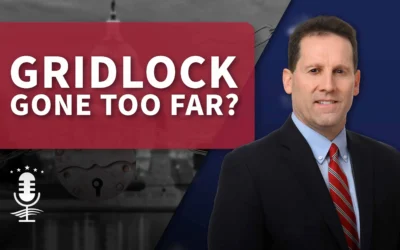Written by
- A lawsuit in Texas is challenging a state law that requires app stores to verify that users are adults or have parental permission before allowing them to download apps. The argument is that this limits speech.
- The argument is misplaced because the Texas law regulates the conduct of ecommerce rather than targeting anyone’s expression.
- Any inconvenience the law creates is justified by the protection it provides to the interests of parents and children.

Is it unconstitutional for a state to require app stores to verify that its users are either adults or have parental permission before downloading apps? A new lawsuit in Texas argues that it is, but that argument is a stretch.
Texas recently enacted a law that requires app stores to verify that users trying to download apps are adults or have parental permission. Utah passed a similar law earlier this year. Other states and Congress are considering similar bills.
The lawsuit argues that Texas is denying minors access to speech that is constitutionally protected and that this violates the First Amendment protection of freedom of speech. The argument falls far short.
The law regulates conduct rather than speech. The PR for the lawsuit raises the specter of children not getting access to the news but the law doesn’t single out informational apps. It applies to the whole range of apps including those that provide access to gaming, health tracking, online commerce, etc.
Rather than speech regulation, the law follows the common practice of having stores that sell products or services that create age-specific risks for minors, like alcohol or cigarettes or even the use of tanning beds, make sure that its customers are old enough to make the purchase. The law regulates the conduct of selling to minors, not the expression of any person or organization.
The app store regulations don’t limit the expression of any specific app creator. Rather, they ensure that children who may be entering into contracts have their parents’ guidance in doing so. Particularly when those contracts can result in recurring charges, unsafe programs, social media, or obscene content.
Simply put, the law is content neutral.
In addition, the right of free speech does not mean that a speaker is guaranteed a right to an audience, particularly an audience of minors and particularly where the minors often are charged for the product or service.
It is also important to note that any inconvenience that these modest requirements create for app store providers, app developers, and users are outweighed by the benefits of having reasonable safeguards to children and teens. The U.S. Supreme Court has upheld laws that prohibit businesses from providing material that is harmful to minors, even when such laws might create minor burdens on stores and other customers. Thus, even if the law were stretched to treat selling apps as a form of speech, reasonable regulations meant to advance the compelling purpose of protecting children would justify the modest requirements imposed in these laws. A more recent U.S. Supreme Court decision approached a challenge to an age verification law related to pornographic material in this way. The Court specifically held “adults have no First Amendment right to avoid age verification.”
Of course there are security and privacy risks in age verification, but app stores already have to deal with sensitive information of users. They collect and store credit card numbers, demographic information, personal contacts, and more. This law merely directs them to make reasonable efforts to verify a user’s age and parental consent. This information is not more difficult to collect and protect than other data they already must deal with.
Free speech is a critical constitutional value but it is not implicated in this case. Parents, youth and children need help navigating an often treacherous online world. Texas and Utah have acted to provide that help by adopting common-sense regulations on e-commerce, without targeting expression. That is a model other states should follow.

Insights: analysis, research, and informed commentary from Sutherland experts. For elected officials and public policy professionals.

- A lawsuit in Texas is challenging a state law that requires app stores to verify that users are adults or have parental permission before allowing them to download apps. The argument is that this limits speech.
- The argument is misplaced because the Texas law regulates the conduct of ecommerce rather than targeting anyone’s expression.
- Any inconvenience the law creates is justified by the protection it provides to the interests of parents and children.
Read More
Why states are right on app store age laws
Texas’s new app store law doesn’t violate free speech, it regulates conduct, not content, to ensure parents help protect minors online.
The rise in AI in education should mean stronger protections for parental rights
As AI transforms education, protecting parents’ rights, choice, and transparency in how schools use AI is essential to building trust and safeguarding students.
Inside the federal government shutdown | Matt Weidinger
The federal government shutdown isn’t just a budget story, it’s a reflection of deeper challenges in how Congress governs.
Connect with Sutherland Institute
Join Our Donor Network
Follow Us
The post Why states are right on app store age laws appeared first on Sutherland Institute.













